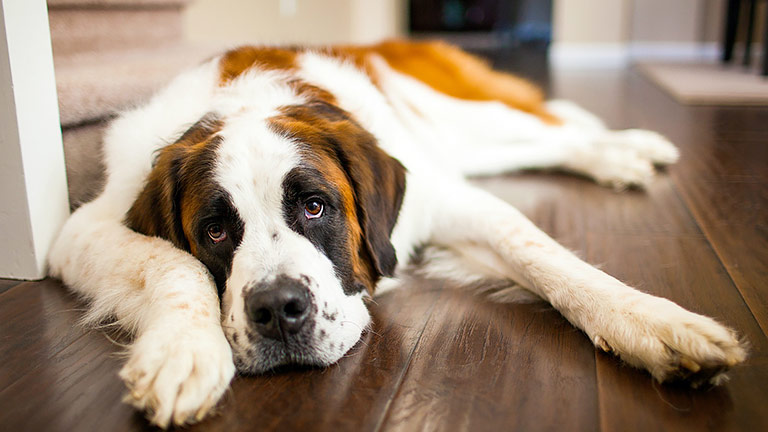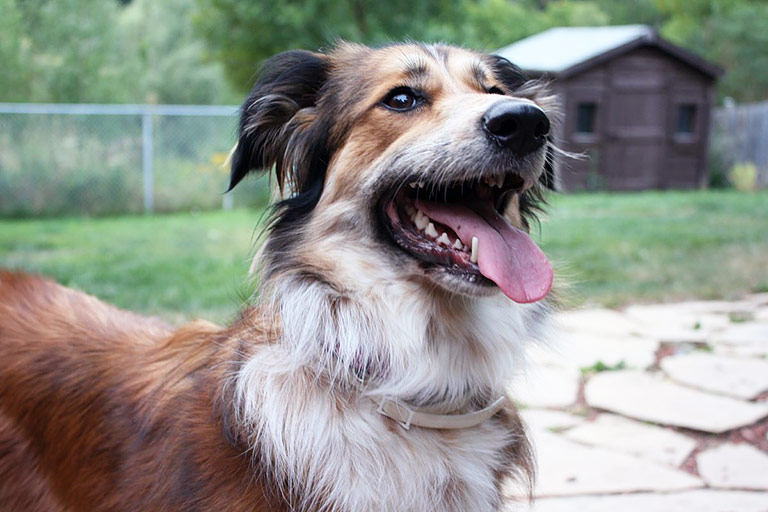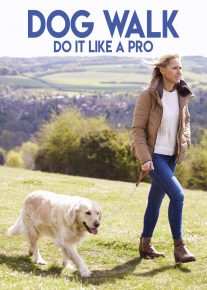
Reasons to Adopt a Senior Dog
When a family decides to bring a new dog into the household, the first option for many is a puppy. However, there’s another kind of dog often found in rescue organizations that’s just as deserving of a home that could be a far better match for your household.
The surprising secret is that older dogs offer a lot of benefits to their potential new families — in fact, these sweet examples of senior adoptions will make your heart melt.
A senior dog, according to veterinarians, is any dog older than 7 years old. For many dogs, especially smaller breeds, they haven’t even hit their prime by age 7. Even so, they’re fully grown; many people looking to adopt may assume there’s something wrong with them or find them less compelling than a cute, wiggly puppy.
Yet, landing in a shelter often isn’t the fault of an older dog at all. Common reasons why adult or senior dogs are given up include the death of the owner, a move where the dog can’t follow, a new baby in the family, the loss of a job, a family member developing allergies or even a change in the work schedule of the owner that doesn’t allow for enough time to care for the dog. Well trained and pure breed dogs might find themselves up for adoption and amazingly, they can wait far longer than other dogs to find a forever home.
Pet Finder conducted a survey that showed older dogs may wait four times as long as other dogs to be adopted. Dogtime notes of the survey, “According to shelter and rescue group members in the survey, the absolute hardest pets to place are older dogs and cats.
While adorable puppies and kittens seem to have no problem finding new homes, senior pets often spend the longest amount of time at the shelter before being adopted — but many do not get adopted at all… Because of low adoption rates for senior pets, old dogs and cats have higher euthanasia rates or even live out their lives in a shelter kennel.”
To counter the myth that adult and senior dogs aren’t desirable for a new rescued pet, we’ve rounded up reasons why adopting a senior dog may be one of the most rewarding pet choices you make.
You know some or all of the dog’s medical and behavior issues
Puppies are full of surprises as they grow up, and that includes personality quirks or medical issues you didn’t plan for. When adopting a senior dog, many of these issues have already come to light and are part of the dog’s adoption story. You can make a highly informed decision whether or not the dog is a match for you, your lifestyle and your wallet.
Knowing what kind of time investment you’ll have to make in training, what kind of financial investment you’ll have to make in medical costs, or what kind of changes you’ll have to make in and around your home to accommodate the dog will likely be clearer with a dog that already has a track record.
As Petfinder notes, “How big will the puppy be? What kind of temperament will he have? Will he be easily trained? Will his personality be what you were hoping for? How active will he be? When adopting an older dog from a rescue, all of those questions are easily answered. You can pick large or small; active or couch potato; goofy or brilliant; sweet or sassy. The rescue and its foster homes can guide you to pick the right match. (Rescues are full of puppies who became the wrong match as they got older!).”
Many people think that senior dogs are more expensive to own than puppies or younger dogs because of health issues. But the reality is dogs are costly their entire lives. You never know what puppies will need as they grow up. But with older dogs, you might have a better idea what your potential new family member will require.
However, Srdogs points out that medical costs may or may not be higher with senior dogs, so “before you adopt a senior, be sure you get a health report from a veterinarian. That way, if you discover that the dog has a health problem, you can decide if you are able to make the needed financial commitment before making an emotional commitment.”
Knowing what you’re in for at the start can make you feel more confident about your adoption decision.
Senior dogs are usually already housebroken
A lot of time, frustration, and destroyed carpets can go into potty training a puppy. Those 4 a.m. wake-up calls to be taken outside or those damp spots you discover in random places around the house are one of the less-than-awesome aspects of bringing a puppy home.
Senior dogs, on the other hand, usually arrive already housebroken. There may be the occasional accident as the dog adjusts to a new home, but most of the work has already been done.
Saving money on ruined rugs, chewed up furniture and other unfortunate surprises is a big reward for bringing a senior dog into the family.

Lower exercise and food requirements
Senior dogs have had a chance to mellow out and, while they’re still ready and willing to head out on a hike or a romp in the park, they don’t have that rambunctious puppy energy that requires constant movement. For someone looking for a companion who likes to go for a nice stroll before hanging out quietly on the couch together, senior dogs are the perfect match.
Even so, they do still need movement. Some sort of activity — whether that’s walking, playing tug-o-war or swimming — is an important part of a senior dog’s health. As Senior Tail Waggers points out, “Regular, gentle and appropriate daily exercise helps keep an older dogs joints, ligaments and muscles strong and supple, improve blood flow, reduce pain and/or inflammation, boost his mood and improve his overall quality of life.”
Finding a dog that is already a perfect fit for your activity level is a key reward for adopting a senior dog.
Another bonus to the lower energy level and being done growing up is food requirements. Because older dogs tend to be less active than their puppy counterparts, they need less food. Whereas puppies might need 3 to 4 cups of food a day, a senior dog that isn’t all that active requires perhaps half that amount. (Of course, your vet will help answer questions like this one based on the specific dog, so be sure to ask.)
Already trained, yet still trainable
If potty training seems like a lot of work, just wait until obedience training begins with a puppy. Navigating the periods of development and energy alongside working on training like heeling, holding a stay, not pulling on a leash, having appropriate social interactions with other dogs and other necessary skills tests the patience and commitment of even the most dedicated dog owners. Senior dogs often allow you to bypass much of this work because they arrive already trained.
While the assumption by many is that older dogs wind up in rescued because of behavior problems, the reality is often the reverse. Rescues are also full of well-trained and well-behaved dogs, allowing prospective families to catch a break on the amount of time spent on basic obedience.
And yet, older dogs are ready and able to learn, and have a much better attention span than puppies, so improving their training or teaching them new tricks is part of the fun of having them in the family.
Healthy Pets writes: “Adult dogs can focus on the task at hand (unlike many of their much younger counterparts). If your adopted older pet needs to learn a few things in her new life with you, not to worry. Enroll her in an obedience class, contact a trainer, or go the do-it-yourself route. Older dogs are more attentive than puppies, and more eager to please their humans.”
If training is high on your list, you may be able to find a retired (or rejected) service dog with exceptional skills. Sometimes dogs that were in programs to become service dogs are cut out of the program for reasons like being overly friendly or not being comfortable in hectic public environments. Both of these traits — being friendly and preferring a quiet atmosphere — are perfectly acceptable in pet dogs. Dogs for the Deaf calls them “Career Change Dogs” since being a pet also counts as a good career for a dog.
Finding a seeing eye dog drop-out or similar dog could be a great score for a family wanting a dog with some training under its belt. Puppy In Training has a list of service dog schools that also provide adoption programs.

Senior dog is ready to love and to be loved
Some senior dogs may have had a rocky past. Perhaps they had an abusive previous owner, or they were a stray for awhile, or perhaps they were just ignored by a family that didn’t have time for them. But dogs are experts at forgiving and forgetting. Whatever their story, senior dogs are so often ready to put the past behind them and enjoy love and cuddles for the rest of their days.
“Senior dogs may bear a few scars — both physical and emotional — but they don’t let their pasts keep them down, no matter how dark they may have been. Dogs have a way of forgiving, forgetting and living in the present. If you give your love to an old dog, you can be sure he will devote the rest of his life to loving you back,” says I Heart Dogs.
What could be more rewarding than ensuring an older dog gets a second chance at a loving home?
You’re helping a friend live out his golden years in the happiest way
One of the best reasons to adopt a senior dog has nothing to do with convenience and everything to do with kindness. Senior dogs, like any animal, deserve a chance to live out their later years in a loving environment.
The kind of companionship and care that best meets their needs can’t be found in a busy, noisy, stressful shelter — even rescue groups with the best of intentions and highest standards. Yet it’s in these shelters that senior dogs too often spend weeks, months, or even the rest of their lives while they wait for a potential adopter.
“Senior dogs spend nearly four times as long on pet adoption websites before finding homes,” says I Heart Dogs. “In overcrowded public shelters they may not have that kind of time. When you open your home and your heart to an older pet, you are saving them from an almost certain death and showing them that they are worthy of love and comfort during their twilight years.”
When you adopt a senior dog, you’re ensuring that one of the dogs least likely to find a peaceful home will instead find the companionship they need and want to provide.




Leave a Reply